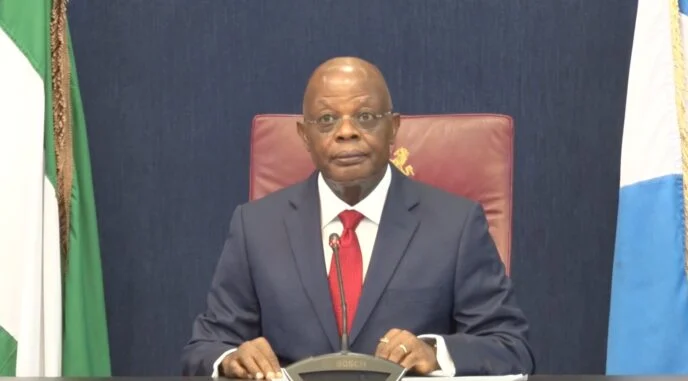
A new survey conducted by the Centre for Journalism Innovation and Development (CJID) has revealed that a significant majority of Rivers State residents strongly oppose the federal government’s declaration of a state of emergency in the state.
The poll, which sampled 400 respondents across the three senatorial districts, including youth, women, civil servants, businesspeople, and both urban and rural dwellers, found that 68.2 percent disapprove of the emergency rule imposed on March 18, 2025, by President Bola Ahmed Tinubu.
The declaration suspended the elected governor and State House of Assembly, replacing them with a sole administrator.
According to the findings, 92.7 percent of respondents were aware of the state of emergency and the suspension of democratic institutions.
Of those, a significant majority viewed the federal government’s action as politically motivated and unconstitutional. Additionally, 65 percent believed the suspension of the governor and House of Assembly was outright illegal.
Despite ongoing political tensions in the state, 72.8 percent of respondents said the suspended officials had been performing their roles effectively.
Many emphasized that regardless of performance, elected officials should not be removed outside constitutional procedures.
The federal government has defended its actions by citing a breakdown of law and order. However, the CJID survey shows 86.7 percent of Rivers residents disagreed with the claim that security concerns justified an emergency rule.
Most respondents said they were able to carry out daily activities without disruption from violence or instability.
Public engagement with the federally appointed sole administrator remains minimal. Over 75 percent of respondents said they had no knowledge of any specific actions or plans initiated by the administrator two months into his tenure.
This lack of visibility has only fueled suspicions of governance without accountability and a growing sense of democratic exclusion among citizens.
Legal experts and civil society groups have expressed concern that the federal government’s intervention in Rivers could set a dangerous precedent for political interference.
Unlike previous emergency declarations—such as those in Plateau, Ekiti, and the North East—where violence was extreme and democratic institutions were largely preserved, Rivers’ crisis is viewed as political and institutional.
The Supreme Court has yet to issue a definitive ruling on the legality of the president’s actions, leaving the nation in a state of constitutional limbo.
As Nigeria heads toward the 2027 general elections, with preparations expected to begin in early 2026, the ongoing emergency rule in Rivers raises serious concerns.
These include fears of voter suppression, weakened civil liberties, and the possibility of a compromised electoral process—particularly in a state known for intense political competition.
Citizens overwhelmingly called for the restoration of democratic institutions, respect for the rule of law, and a peaceful, constitutional resolution to the political crisis.
